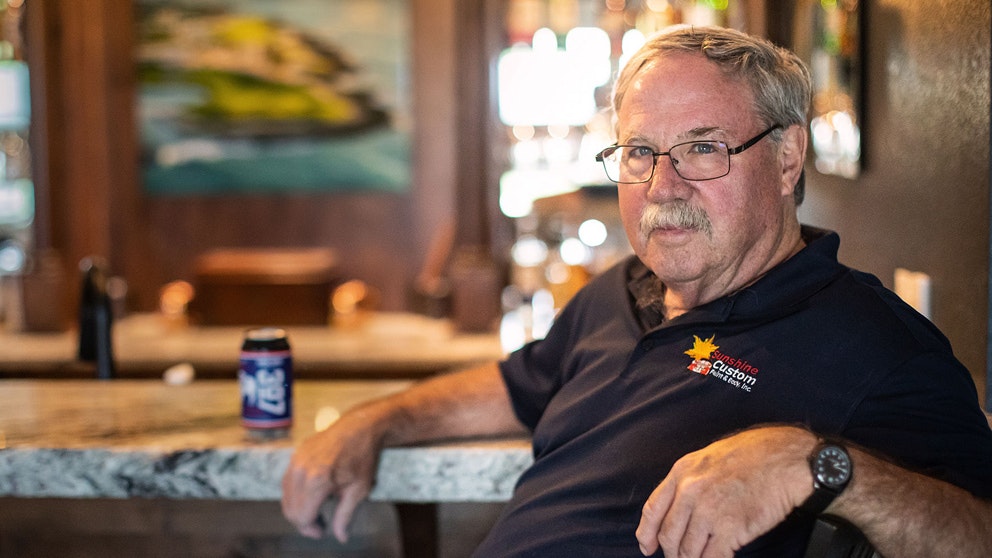If it's real-life drama you seek, sometimes it's right under your nose.
Turn off the TV and take a seat in your district courtroom.
I thought of that last Wednesday as I watched the televised plea hearing of Brian Kohberger, skinny, bushy eyebrows, wearing a dress shirt and tie in a Boise, Idaho, courtroom as he matter-of-factly pleaded guilty to the stabbing murders of four young college students in 2022 in Moscow, Idaho.
“Yes” he admitted time after time as the gruesome details of his crime were laid out by the judge. One legal expert said Kohberger's responses were as casual as if he were “ordering a pizza.”
It was businesslike, as you'd expect in a court of law, antiseptic in tone, and yet jaw-dropping as each awful detail was posed, and Kohberger promptly answered “yes,” or “guilty.” Four young lives lost, and Kohberger has never explained why.
“Are you pleading guilty because you are guilty?” the judge asked. “Yes,” Kohberger replied, as if asked if he wanted fries with his Big Mac.
I watched the whole thing.
And it brought back memories from trials I covered when I was a reporter.
Like the two guys convicted of stabbing to death two Good Samaritan ranchers in eastern Laramie County, who agreed to drive them back to Cheyenne when they showed up one cold winter night after being thrown off a bus.
After killing the ranchers, they put the bodies in the back of the pickup, then dumped them, leaving a pool of blood in the truck bed.
The pool of blood was still there when a cop pulled them over for making an illegal U-turn in front of the main police station in Chicago.
A truck with Wyoming plates, blood in the back, and a registration with the owner's name scribbled out and a name penciled in raised immediate questions.
On hearing that testimony at the trial, longtime Cheyenne reporter Kirk Knox leaned over to me and said, “These two belong on Death Row for being so stupid.”
When Judge Vernon Bentley sentenced them to death, the tough demeanor of Billy Cloman was betrayed by a loud case of hiccups.
“Man, we been railroaded!” he managed to say between hiccups.
He and Julian Turner escaped execution when the death penalty was subsequently overturned by the Supreme Court.
Then there was a Douglas doctor, accused of murder in the drug-related death of his wife, who went ahead with a barbecue with church friends the evening after his wife died. Jaws dropped in disbelief.
The victim's mother attended the trial, but left the courtroom when the details became too painful. I chatted with her during a break. We talked about the spring weather in Wyoming versus her home in Michigan. Anything to change the subject.
It was a powerful moment after the verdict when sheriff's deputies put handcuffs on the Douglas doctor, and led him away. His conviction was later overturned on appeal.
Then there was the trial of a mine worker from Iowa who came out to Craig, Colorado, for work, and ended up putting a bullet in the head of another guy, over a drug deal. A witness said this of the victim: “His head exploded like a melon.” The verdict: Life.
Then there was the bar-hopping knucklehead in Rawlins who got the great of idea of robbing a gas station to get cash so his floozy girlfriend – who danced naked the night before on a barroom table – could leave town. He shot the gas station attendant after making him open a floor safe at a little station between Rawlins and Sinclair.
A railroad track crew heard the shots, and saw the murderer run toward Sinclair in the heat of the day. A store owner in Sinclair said he came in, desperately thirsty, and “he smelled like a hippy.”
His mother showed up for every day of the trial, leaning over the bar to say a few comforting words to her son.
I think he got 20 years.
Then there was the guy who drove all the way from Plymouth, Indiana, to the Summit Bar east of Laramie, to pump bullets into his son, a student at Wyo Tech. Left him draped over a barbed wire fence on a bitterly cold winter night. They had to thaw out the body in Laramie before discovering the cause of death – bullet wounds.
Cops in Indiana found a life insurance policy on the kitchen table of the murderer's mobile home. The policy on the son named the father as beneficiary.
During the trial, it came out that the defendant drank beer on his way west to Wyoming to kill his son. “Coors beer?” a detective asked. Absolutely not, was the reply. He had higher standards than Coors.
The jury convicted him of second-degree murder. I was on vacation when he was sentenced, but was told that Judge Bentley said, “You got lucky with the jury, but you're not getting lucky with me,” and gave him the maximum sentence.
I heard he became a pretty good barber in prison.
Most of us lead lives devoid of this kind of drama, thank heavens. But if you want to see how crazy life is being led by some among us - if you want to turn over that rock and see what's below - it's on full display pretty regularly at your local courthouse.
Powerful stuff.
Dave Simpson can be reached at: DaveSimpson145@hotmail.com





